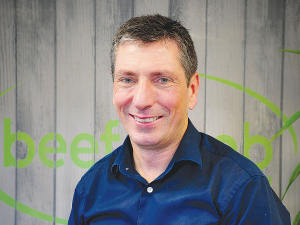Subsidies keeping wind, solar generation viable
OPINION: I recently wrote an open letter to the Prime Minister because at a recent Federated Farmers meeting, Chris Luxon told me wind and solar generation is not subsidised.
 Beef + Lamb NZ chief executive Sam McIvor says using forestry to offset fossil fuel emissions is a short-term fix creating long-term problems.
Beef + Lamb NZ chief executive Sam McIvor says using forestry to offset fossil fuel emissions is a short-term fix creating long-term problems.
New research has found New Zealand’s policy of allowing fossil fuel emitters to offset all their greenhouse gas (GHG) emissions by planting trees is at odds with the rest of the world, and it’s having a damaging impact on the agricultural sector and rural communities.
Beef + Lamb New Zealand (B+LNZ) commissioned the International emissions trading schemes and forestry report to explore the relationship between emissions pricing and forestry in other countries.
The study focuses on how other countries use ‘offsets’ within an Emissions Trading Scheme (ETS) as they transition to using less fossil fuels.
A key finding was that New Zealand and Kazakhstan are the only countries that allow 100% offsetting in their carbon pricing mechanism.
While Kazakhstan theoretically allows 100% offsetting, individual companies must apply to offset on a project by project basis and no instances of forestry offsetting happening in practice could be found.
Because New Zealand allows for 100% offsetting and full participation of forests in the NZ ETS, the carbon market and forestry sectors are intricately linked with each having the ability to vastly impact the other.
The European Union and the UK do not allow carbon offsetting in their ETS, while China, South Korea, and US states Washington, North Carolina and California allow for below five percent.
Meanwhile, Mexico and Taiwan, along with Canadian province Quebec, allow for 10 percent and other areas like Tokyo permit up to 33 percent offsetting.
While other countries enforce strict limits and requirements to ensure offsets deliver a variety of benefits, New Zealand has no set targets to reduce emissions from fossil fuel use or any limits on how much offsetting can happen through the ETS to meet climate change targets.
This means there are no limits on how much land can be converted into forestry to create carbon credits for sale.
B+LNZ chief executive Sam McIvor says using forestry to offset fossil fuel emissions is a short-term fix creating long-term problems.
“We are not anti-forestry and there is a place for some carbon offsetting, but we are very concerned about the volume of carbon offsetting.
“Some limits are needed to slow the rapidly increasing amount of sheep and beef farmland being purchased for forestry conversion as a result of the increasing carbon price.
“Multiple schemes internationally have managed the risks posed by carbon forests by limiting their use in carbon markets, requiring additional social benefits to be demonstrated along with emissions removals, and seeking Ministerial approval for exotic forest projects, among other actions.
“New Zealand’s lack of conditions mean fossil fuel polluters can keep avoiding the need to cut back on fossil fuel use and instead offset their pollution by using carbon credits generated on our farms through the wholesale planting of pine trees.”
McIvor says sheep and beef farm purchases have risen from 7,000 hectares in 2017 to 52,000 hectares in 2021 (for a total of 175,000 hectares over the five-year period).
“We estimate this equates to one million less stock units, 1,600 fewer jobs a year, $170 million less spent in communities annually and $245 million less in export revenue annually,” he says.
Environmental groups, the Parliamentary Commissioner for the Environment and the Climate Change Commission have all recently called for limits on forestry.
McIvor says farmers can also be part of the solution by planting the exotic and native trees needed, but they must receive greater recognition for the carbon removals on their farms.
“We believe much of New Zealand’s need for sequestration from forest offsets could come from the integration of trees on sheep and beef farms. This allows food production to continue, maintains rural employment and ensures export revenue,” he says.
There is also significant Māori agribusiness interest in forestry and carbon farming.
“It’s important that any potential changes to the NZ ETS are made in partnership with key stakeholders and industry groups like B+LNZ as well as Māori landowners and iwi or hapū.”
Controls on the movement of fruit and vegetables in the Auckland suburb of Mt Roskill have been lifted.
Fonterra farmer shareholders and unit holders are in line for another payment in April.
Farmers are being encouraged to take a closer look at the refrigerants running inside their on-farm systems, as international and domestic pressure continues to build on high global warming potential (GWP) 400-series refrigerants.
As expected, Fonterra has lifted its 2025-26 forecast farmgate milk price mid-point to $9.50/kgMS.
Bovonic says a return on investment study has found its automated mastitis detection technology, QuadSense, is delivering financial, labour, and animal-health benefits on New Zealand dairy farms worth an estimated $29,547 per season.
Pāmu has welcomed ten new apprentices into its 2026 intake, marking the second year of a scheme designed to equip the next generation of farmers with the skills, knowledge, and experience needed for a thriving career in agriculture.

OPINION: Here w go: the election date is set for November 7 and the politicians are out of the gate…
OPINION: ECan data was released a few days ago showing Canterbury farmers have made “giant strides on environmental performance”.